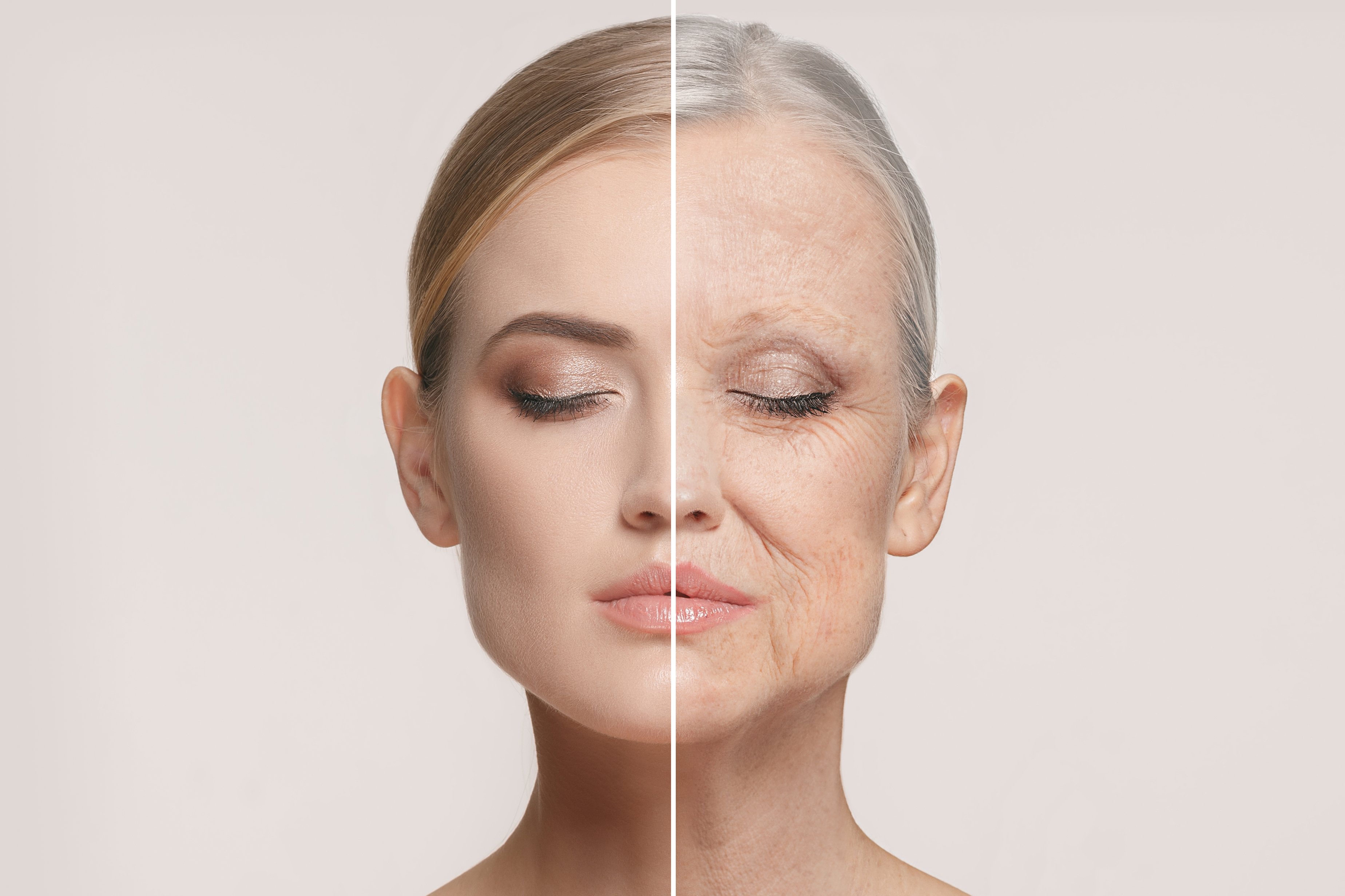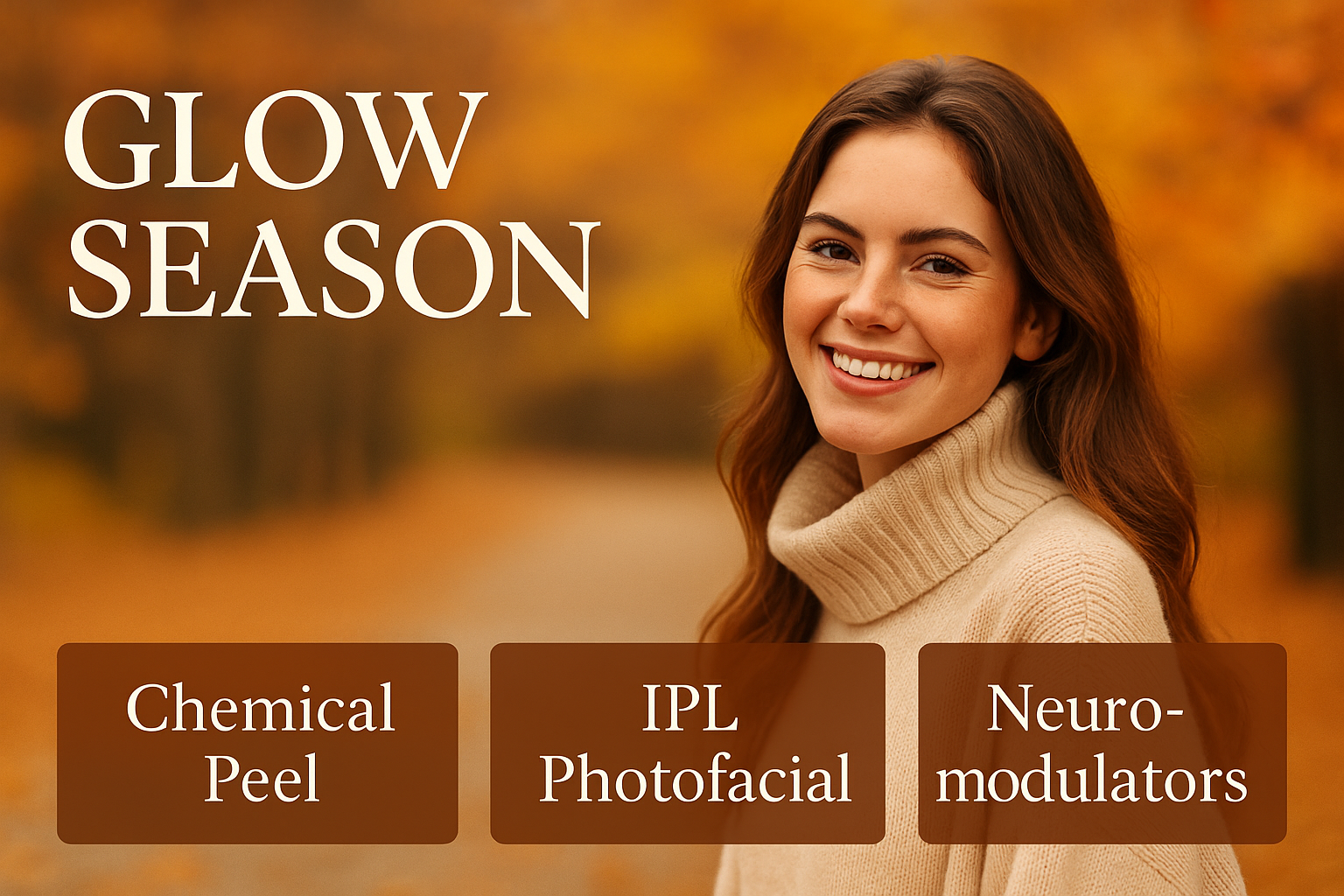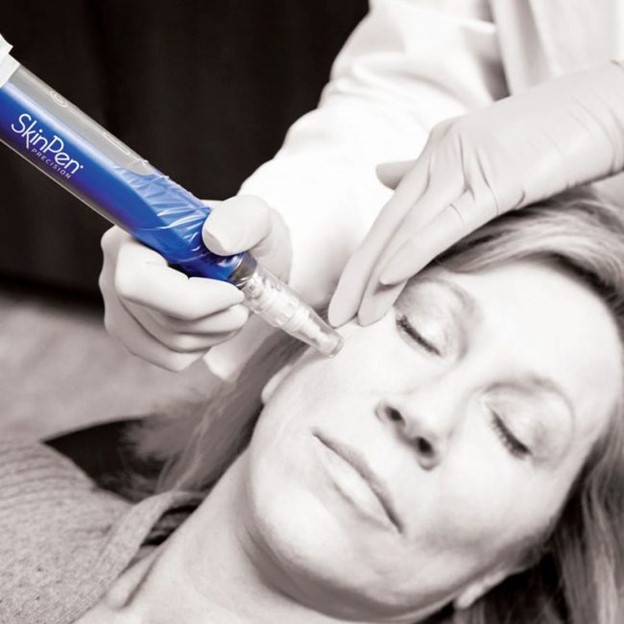
Skin aging is a normal part of life, and the inevitable result of living into adulthood. But most of us want to preserve our healthy skin and youthful appearance for as long as possible, so it's important to know the factors that cause skin damage over time, and how to counteract them.
Normal aging causes several changes the skin's appearance, regardless of lifestyle or skin care habits:
- Collagen production slows: For every year after the age of 20, the body produces one percent less collagen. Collagen promotes elasticity, and the skin loses it over time, until collagen production ceases entirely in our 40s.
- Exfoliation decreases: In our 20s, the natural skin exfoliation process decreases, causing dead skin cells to accumulate and dull the surface of the skin.
- Moisture slows: Starting in the 30s, the rate of moisture transferred from the dermis to the epidermis decreases, thinning the surface layer of the skin.
- Sebaceous glands shrink: In our 50s, the sebaceous glands get smaller, making the skin dry and prone to bruising and damage.
These factors affect everyone, but the visible signs of these changes are also heavily influenced by genetics.
Other factors that affect the appearance of skin over time are environmental. Over the years, the skin is exposed to:
- Free radicals: Free radicals are atoms or electrons that contain unpaired electrons. This unpaired state makes them unstable, susceptible to losing or gaining an electron. Damage occurs when a free radical encounters another atom or molecule, and pulls an electron toward itself. The affected atom then itself becomes a free radical, and pulls an electron from somewhere else, causing a chain reaction, until an electron is pulled from a molecule that cannot function normally without it. In the skin, factors like pollution, smoking, and UV radiation cause free radicals. Antioxidants like ascorbic acid (vitamin C) combat them because they are able to donate an electron and remain themselves stable, neutralizing the free radical and preventing the chain reaction.
- Glucose: Glucose is a necessary fuel for the body, but it crosslinks with proteins and creates age-related glycation end-products (AGEs). These compounds are linked to inflammation, and can in turn crosslink with collagen, to cause stiffening and reduce elasticity in skin. Once again, Vitamin C (along with other compounds) has been found to inhibit AGE production.
- Ultraviolet radiation: Long term exposure to the UV radiation produced by the sun not only causes free radicals, but damages the DNA of skin cells, reducing their ability to effectively repair themselves.
The final group of skin-aging factors are lifestyle factors, dependent on individual behaviors. Signs of aging are exacerbated by long-term use of products containing:
- Parabens: Parabens are preservatives used in a variety of food and personal care products. Large quantities of parabens have been linked to adverse effects on the body's hormone production, but in the skin it has been shown to negatively affect both keratin and collagen. While the FDA has ruled the tiny quantities of paraben found in most products safe, many people prefer to avoid it.
- Sodium Lauryl Sulfate (SLS) and Sodium Laureth Sulfate (SLES): Put simply, SLS and SLES are compounds that produce lather and foam, and are found in most cleaners and soaps, from laundry soap and toothpaste to body wash and moisturizers. They are a controversial product, and, while deemed to be safe by the FDA, are known to dry and irritate skin.
- Fragrances: While many fragrances are pleasing, and they enhance the appeal of some products or cover up naturally unpleasant odors in others, many fragrances that the nose likes are harmful to the skin over prolonged exposure. Also, fragrances are allowed to be proprietary company secrets, so the FDA does not require specific, accurate labeling of the ingredients in fragrances. Fragrances are among the most common product ingredients to cause irritation, even among people without sensitive skin.
Aging is a normal part of life, but there are healthy habits that you can adopt to reduce long-term skin damage and preserve your youthful appearance. We recommend people avoid environmental factors that age the skin as much as possible and reduce their affects with sunscreen and a healthy diet. And always be sure to avoid harmful ingredients in skin care products to reduce the chance of unnecessary skin damage accumulating over time. Take care of yourself and glow for years to come!









